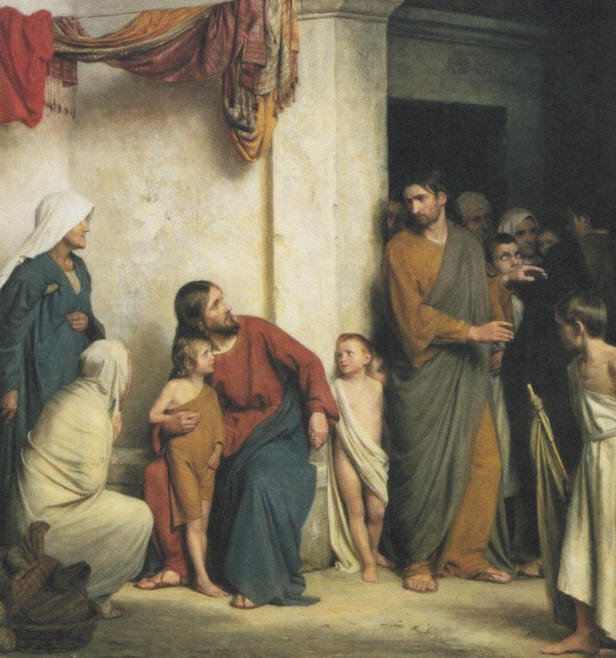
Working at a parish, I encounter parents wanting to involve their children and teens in community service. Sometimes this type of outreach is required for a school, a club, or to create a well-rounded college application.
Other times, for younger children, parents say they want their offspring to help others less fortunate so they can become more appreciative of the privileges and material goods they possess. By encountering those who are less privileged, these parents hope their children will be more grateful for what they have.
I’m convinced that helping others is good, no matter the motive, but I can only hope the experience of service will reap more than these sought-after benefits.
Serving others is a way of life for a Christian. And while outreach efforts don’t always have to be grand, they should be made in the spirit of self-giving.
Gratitude does not result from making a comparison between how much I have and how little someone else has. It comes from recognizing that everything is a gift from God. If I see all I possess as a gift, then I share what I have because I am a steward, not an owner.
Where we go wrong is in adopting a philosophy about giving contrary to Gospel values, yet often confused with Christianity. Sayings like “God helps those who help themselves” and “charity begins at home” contradict Christian teaching. Neither of these popular sayings appears in the Bible, and both can lead to a narrow view of our responsibility toward others.
Sadly, American culture is steeped in a celebration of individualism and a work ethic that tends to pit those who have against those who need.
Add to this a political climate generating fear and scapegoating, and we American Christians can be easily led astray.
In Jesus’ time, those who suffered were themselves blamed for their own suffering. The popular belief at the time was that God was punishing the poor and downtrodden and ill for their sins or for the sins of their ancestors. Jesus, in every encounter with those who suffered, relieved them of their burden of suffering and the burden of shame. He liberated them from the slavery of being considered undeserving of God’s love.
Dishearteningly, in some Christian circles, certain people are still considered unloved by God.
None of us is deserving of God’s love. When we recognize that we do not merit His grace, then we recognize that we are no different in the Lord’s loving sight from people we may scorn.
God loves all people, without condition and without exception. This love includes people in prison, people on death row, people illegally crossing borders, people seeking refuge from war, gang members, sex offenders, drug dealers, homeless people, addicts, terrorists. This love includes people of every religion and every nation and those who are atheist and agnostic.
Christians who come to accept that all people are loved by God are themselves transformed. As followers of Christ, the One whose blood was poured for love of all, they become the conduits of God’s grace, a grace that transforms the lives and changes the hearts of people who otherwise might never know self-giving love.

